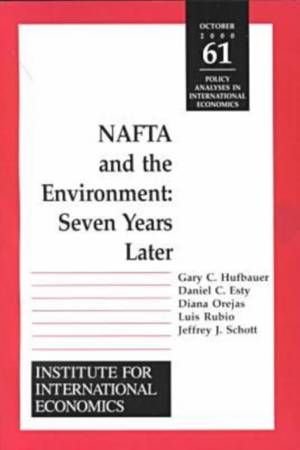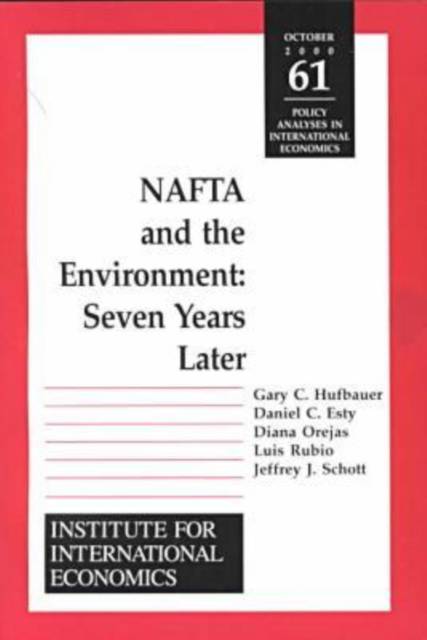
- Retrait gratuit dans votre magasin Club
- 7.000.000 titres dans notre catalogue
- Payer en toute sécurité
- Toujours un magasin près de chez vous
- Retrait gratuit dans votre magasin Club
- 7.000.0000 titres dans notre catalogue
- Payer en toute sécurité
- Toujours un magasin près de chez vous
NAFTA and the Environnment
Seven Years Later
Gary Clyde Hufbauer, Daniel Esty, Diana Orejas, Luis Rubio, Jeffrey SchottDescription
Air and water pollution blighted northern Mexican cities long before the North American Free Trade Agreement (NAFTA) was a glimmer on the political horizon. Not surprisingly, when NAFTA became a political reality, environmentalists argued that commercial competition would weaken environmental standards in Canada and the United States and industrial growth in Mexico would further damage its weak environmental infrastructure. NAFTA's huge success in expanding free trade has concentrated population and environmental abuse at the US-Mexico border where it is most visible to Americans. Many environmental groups blame NAFTA and, drawing on its experience, now oppose new trade initiatives.Does the NAFTA record on the environment since 1994 justify its criticism?
In this seven-year analysis, the authors review NAFTA's environmental provisions, including a side accord--the North American Agreement on Environmental Cooperation (NAAEC), the situation at the US-Mexican border, and the trends in North American environmental policy. They emphasize that the environmental problems of North America were not the result of NAFTA and the NAAEC was not devised to address all of them. The authors recommend ways to better NAFTA's environmental dimension in all three countries, and improve living conditions where economic growth is greatest--at the US-Mexican border. It makes more sense to tackle the shortcomings than to lament NAFTA and the economic growth it promotes.Spécifications
Parties prenantes
- Auteur(s) :
- Editeur:
Contenu
- Nombre de pages :
- 86
- Langue:
- Anglais
- Collection :
- Tome:
- n° 60
Caractéristiques
- EAN:
- 9780881322996
- Date de parution :
- 01-10-00
- Format:
- Livre broché
- Format numérique:
- Trade paperback (VS)
- Dimensions :
- 152 mm x 229 mm
- Poids :
- 136 g

Les avis
Nous publions uniquement les avis qui respectent les conditions requises. Consultez nos conditions pour les avis.






